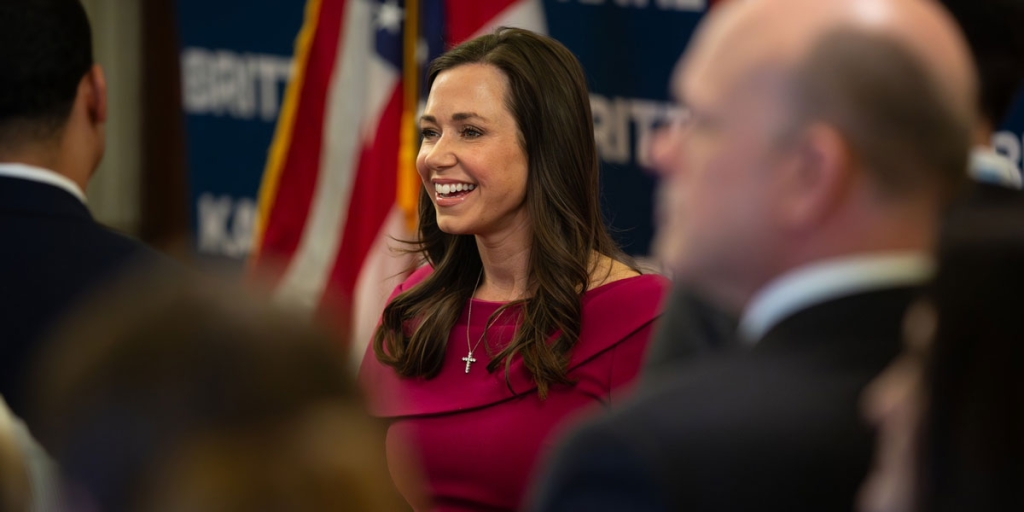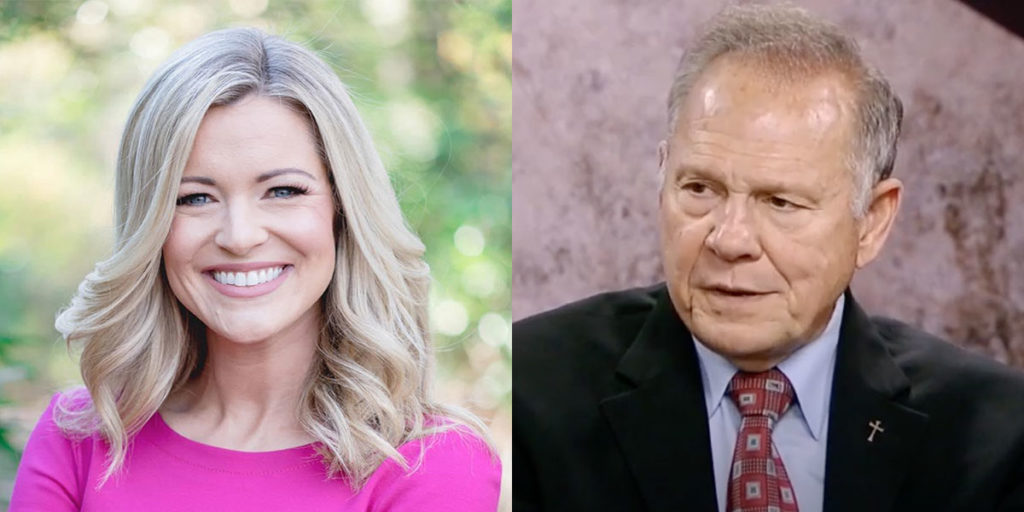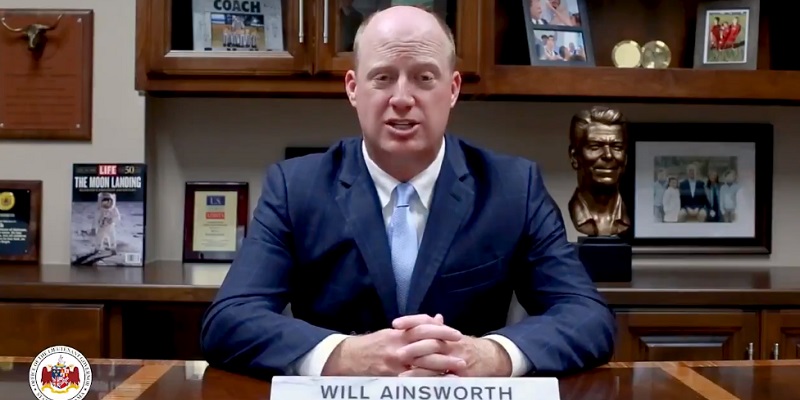
After Alabama Gov. Kay Ivey indicated that she believed Roy Moore’s accusers but would vote for him anyway, the reaction was swift, severe and predictable.
Meredith Cummings, A University of Alabama journalism instructor and AL.com blogger, called it a “special kind of betrayal” of women. The website’s popular cartoonist, J.D. Crowe, drew the governor with the caption, “I am Roy Moore.”
Columnist Roy Johnson called Ivey’s comments about the Republican nominee for the U.S. Senate “patently absurd.”
Ed Kilgore wrote in New York Magazine that while the Moore scandal had caused an “awful lot of Alabama Republicans to say an awful lot of dubious things to rationalize supporting” Moore, Ivey “may take the cake.”
HuffPost contributor and Alabama native Cody Lyon wrote that he felt “shame sprinkled with confusion” at Ivey’s pronouncement and asked how she could explain her vote to the state’s little girls.
But Ivey’s rationale is no mystery.
“I believe in the Republican Party, what we stand for, and most important, we need to have a Republican in the United States Senate to vote on things like the Supreme Court justices, other appointments the Senate has to confirm and make major decisions,” she told reporters last week. “So that’s what I plan to do, vote for Republican nominee Roy Moore.”
Essentially, Ivey is prioritizing the Republican agenda over the moral conduct of the candidates who might fill the seat once held by Attorney General Jeff Sessions.
Many undoubtedly disagree with that rationale and would conclude that no Supreme Court justice or tax cut justifies elevating a man accused of improper sexual contact with a minor — no matter how many years ago.
But Ivey’s view is only a more extreme version of what most politicians — and many rank-and-file voters — routinely do. White House counselor Kellyanne Conway, though not as transparent as the governor more or less made the same pitch during an appearance on “Fox and Friends” on Monday.
“Folks, don’t be fooled,” she said, referring to Democrat Doug Jones. “He’ll be a vote against tax cuts.”
It always is preferable to vote for the candidate who best represents your political views and is the superior moral choice on the ballot. But when those two things are in conflict, most voters will give greater weight to their political agenda. This includes, apparently, at least two of Moore’s accusers.
Leigh Corfman, quoted in the original Washington Post story that ignited the controversy, and Beverly Young Nelson, who appeared at a news conference last week to accuse Moore of trying to force sex on her when she was 16, both said they voted for President Donald Trump last year. This is despite the fact that multiple women have accused Trump of sexual harassment and assault.
This prioritization of politics over morality explains countless other elections. It is why Bill Clinton twice won the presidency — against a pair of World War II heroes — despite credible allegations of infidelity and sexual harassment. It’s why Marion Barry won election in 1994 as mayor of Washington — despite having served time in prison on drug charges after getting videotaped smoking crack cocaine.
It is why David Vitter won re-election to the Senate from Louisiana in 2010 after admitting that he had paid a Washington escort service for sex.
It is why Rep. Scott DesJarlais (R-Tenn.) remains in Congress today despite revelations in 2012 that, even though he has compiled an anti-abortion voting record, he encouraged his ex-wife to have two abortions before their marriage. Voters evidently cared more about the abortion votes than the actual abortions.
There are countless other examples. And those are just the ones where the ethically challenged candidates won. For every example like that, there is one where the compromised candidate nearly won. Former Rep. William Jefferson (D-La.) in 2008 came within 1,826 votes of winning re-election despite having been indicted on federal corruption charges the previous year. For memory’s sake, he was the guy with the $90,000 in cash in his freezer.
The phenomenon is a combination of hyper-partisanship and the fact that the stakes of elections — particularly at the national level — are high. The federal government is massive and influences every corner of its citizens’ lives. For politicians, there is the added incentive of personal gain or loss depending on whether he or she demonstrates party loyalty.
Presumably, nearly everyone has a line. Some voters may be willing to overlook a consensual affair or minor abuse of office, but not rape or outright bribery. When it comes to Moore, each voter will have to determine for himself or herself where that line is.
Brendan Kirby is senior political reporter at LifeZette.com and a Yellowhammer contributor. He also is the author of “Wicked Mobile.” Follow him on Twitter.












